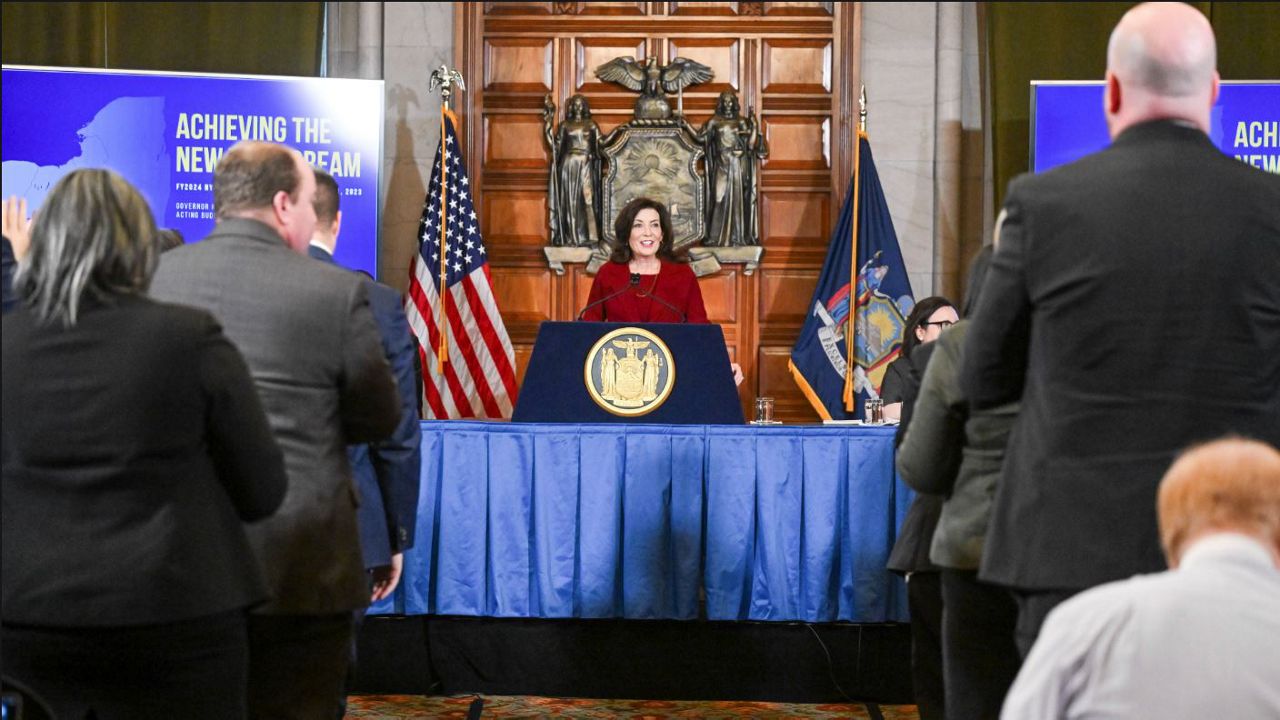New York lawmakers and Gov. Kathy Hochul have less than two weeks to hammer out a budget deal by the April 1 deadline, the start of New York's fiscal year.
But top officials are also not fully ruling out going past that deadline this year as lawmakers and the governor negotiate a range of contentious issues, from the state's bail law to housing policy.
"A timely budget?" Senate Majority Leader Andrea Stewart-Cousins said on Wednesday. "I think we can do it."
Speaker Carl Heastie has said he prefers a "good budget" compared to an "on-time budget."
Budgets put to bed by April 1 were a focus of former Gov. Andrew Cuomo, who celebrated the achievement of spending plans passing by or around April 1 as a sign of good governance and competence in government.
For years in New York, budget negotiations would routinely stretch through April and May. The final year of Gov. David Paterson's time in office saw one of the latest budgets ever approved in mid-August.
Late budgets can complicate the lives of people who run organizations dependent upon state aid, making it harder for non-profit organizations and school districts to do their own budgets.
The state government itself is funded through stop-gap budget measures that typically pay the bills — including state payroll — for several days.
That year of the mid-August budget, Paterson used the governor's leverage to end the impasse and place his desired spending goals in the stop-gap bill, forcing lawmakers to either accept it or shut the government down. In the end, the strategy worked.
"Governors, they have a lot of leverage in the budget — maybe more leverage on any other policy issue in the budget," said Senate Minority Leader Robert Ortt, who is urging Hochul to see through her changes for the state's bail law. "The question is whether she uses that leverage to keep New Yorkers safer or if she backs off on that."
Hochul has said she's fully aware of her office's leverage during the budget negotiations, especially when a budget is late. But she has also sought to take a more even-keeled approach with the Legislature compared to her predecessor.
Democrats in the state Legislature have their own forms of leverage, including supermajorities in the state Senate and Assembly.
"I don't say we are emboldened," Stewart-Cousins said, "but I do believe we are empowered to do the things that we are doing because when we say we do something, we actually do it, including criminal justice."



